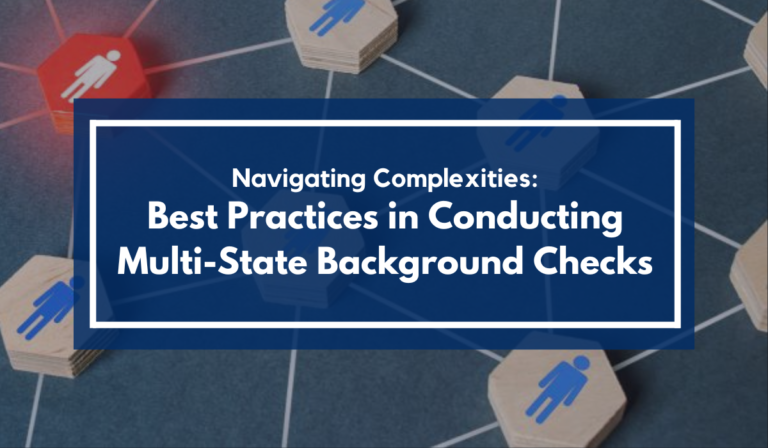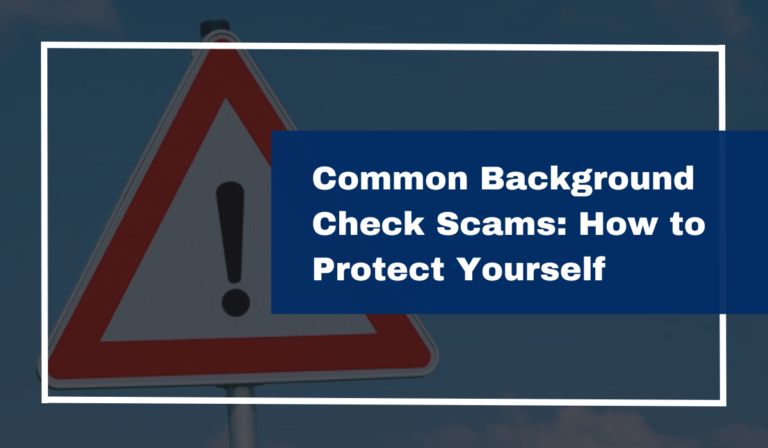Discretion Expertise Results
About Criminal Records
Contact Us

Statewide Criminal Searches Are Not Perfect
These types of searches appear impressive and seem to be a criminal record catch all for their states. This could not be further from the truth.
First and foremost, no nationwide standard is in place to cover criminal records in all 50 states. In fact, in 1998, Congress amended the Fair Credit Reporting Act (FCRA) to eliminate the seven-year limitation on criminal records reporting. By doing so, they left intact the portion of the law that allowed states that had more restricted rules in their statutes to override this seven-year limitation. Since many states, such as California, passed laws that copied the provisions of the original FCRA, including the seven-year limitation in certain instances, there is currently no workable national rule. These limitations are not meant to restrict the searches, but they have created a tremendous variance in the restriction of criminal information and its availability.
Furthermore, every state (and many counties) have established their own criteria for what qualifies as a “reportable” offense to their respective state sanctioned repository. State criminal indexes receive their data from the counties within its jurisdiction. If a county fails to report criminal data to the state, the statewide index may not be up to date. For example; in Michigan the criterion for a reportable offense is if it involves felonies and serious misdemeanors over ninety-three days in jail. All of Michigan’s eighty-three counties are required to participate, but not all of them provide accurate timely records to the Michigan State Police. This could be due to different sentencing guidelines that exist in each jurisdiction, or what they report as ‘serious offenses’. Does this mean they have to report it if a subject is arrested for it, when he is charged or when a verdict is reached? Too much leeway exists for each county.
Another problem lies in the technological advancement of these county agencies and the direct impact on their ability to provide this information to the state and how quickly it can be done. If a county’s infrastructure is still living in the 1970’s, how quickly and efficiently can they provide this information to the state? One can take this same logic and apply it to criminal records that exist at the municipal level where collection and reporting matters are much worse.


Keep in mind that these record archives deal only with their perspective state. No federal offenses are compiled with them. In addition, most suppressed records and warrants will not show up in the standard statewide searches either. Since the index is built upon convictions, no records will exist where a subject was a suspect in a crime or where the charges were dropped by the arresting agency. In addition, each state has developed separate requirements for how often its own database is updated. Some state maintained repositories are updated daily, others monthly. There is no way to gauge the accuracy of the records except through the eyes of a skilled investigator.
Remember that there are three parts to a standard criminal record. The first part being the arresting information of the subject. This usually shows the initial offense for which the subject was arrested. The second portion deals with what the subject was actually charged with by the prosecutor. The final section deals with the judicial ruling and the disposition of the case. As many of you have probably seen before, all three of these areas can be extremely different from one another.


The last problem that exists is the variance in each partial search system that the states provide. Some record searches in states that are not regulated by the seven years may have histories that go back to the 1970’s on one subject, but on another, it will only go back the seven years. One would think that after nine years of the FCRA alteration that these problems would be fixed. Other systems will not allow general searches under race or gender when that information is not currently available by the user.
With all these variations that exist among the states that offer ‘statewide’ criminal searches, it is always necessary to cross check the data from these statewide criminal records with the county of concern, or at least contact that county’s court to ascertain if they have updated the state files.









